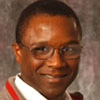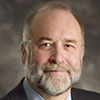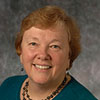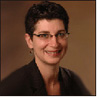The race for the presidency will be decided next month when voters go to the polls and cast ballots to either return Democratic President Barack Obama to the White House for a second term or replace him with the Republican candidate, former Massachusetts Governor Mitt Romney.
Both candidates have been crisscrossing the country selling their vision of America to the electorate by providing a stark contrast on a variety of issues from jobs, unemployment and the economy to immigration, health care and foreign policy.
Throughout this election season, Rutgers has been at the center of original research and teaching about the U.S. political system, national security,education, tax reform and income inequality, jobs and the worst economic conditions since the Great Depression.
The outcome of the presidential race will certainly set a new agenda for how we move forward as a nation in the next four years. Rutgers faculty and staff has been committed to moving the debate beyond the political rhetoric and mudslinging in order to provide citizens with the knowledge they need to become informed and responsible voters.
Decision-making and voting
Richard R. Lau is a professor of political science in the School of Arts and Sciences (SAS) and studies the strategies voters use to help them decide how they are going to vote. In his award-winning book, How Voters Decide: Information Processing During Election Campaigns co-authored with David P Redlawsk, the two examine political decision-making and voting and the effect of the media on political campaigns. An expert on the different strategies voters use to choose a candidate, Lau researches the role of self-interests in political attitudes and behavior and the effect and effectiveness of negative political advertisements. Contact Lau at ricklau@rci.rutgers.edu or 732-932-6685.
Polling
David P. Redlawsk is a professor of political science, in the School of Arts and Sciences (SAS) who does research on campaigns, elections, the role of decision-making and the emotional responses to campaign information. As the director of the Eagleton Center for Public Interest Polling (ECPIP) he will be conducting periodic Rutgers-Eagleton Polls on a wide range of electoral and political topics throughout the presidential campaign. Redlawsk, who co-authored How Voters Decide: Information Processing During Election Campaigns with Richard R. Lau, recently published Why Iowa?: Sequential Elections, Reform and U.S. Presidential Nominations. Contact Redlawsk at Redlawsk@rutgers.edu or 732-932-9384, ext. 285.
The Economy, Tax Policy and the Workforce
Rosanne Altshuler
is professor and chair of the Department of Economics, School of Arts and Sciences. She does research on federal tax policy issues, including tax reform proposals and corporate taxes in a world economy. She examined rate hikes needed to reduce the deficit to a sustainable 3 percent of GDP, and concluded that protecting low- and middle-income taxpayers from any tax increases would result in top rates that would stifle economic activity. No stranger to the policy discussion in Washington, D.C., she believes that changes to Social Security and Medicare are necessary and overdue, but is cautious about advocating austerity measures that might hinder recovery. Contact Altshuler at altshule@econ.rutgers.edu or 732-932-7850.
William M. Rodgers III
is professor and chief economist at the John J. Heldrich Center for Workforce Development. He examines issues in labor economics and the economics of social problems, and is following the recent recession and recovery’s impact on American families, especially those of minorities. His current research on racial inequality includes a study of the recession's impact on the displacement of black and white public sector workers. Rodgers' most recent study is entitled Future Work 2.0: Life After the Great Recession. Contact Rodgers at wrodgers@rci.rutgers.edu or 732-932-4100, ext. 6203.
Carl Van Horn
is a professor of public policy and director of the John J. Heldrich Center for Workforce Development who has authored 14 books on policy issues facing the American workforce, including No One Left Behind: Economic Change and the American Worker, which provides a realistic and comprehensive view of policymaking. In a national study released in 2011, Out of Work and Losing Hope: The Misery of the American Unemployed, Van Horn, an expert on employment policy issues effecting the workforce – unemployment insurance benefits, hiring younger workers and underemployment – highlights the struggles of the unemployed and bleak prospects they face in finding jobs in the future. Contact Van Horn at vanhorn@rutgers.edu or 732-932-4100, ext. 6305.
Cliff Zukin
is a professor of political science and public policy at the Edward J. Bloustein School of Planning and Public Policy and the Eagleton Institute of Politics. A national expert on opinion polling, mass media and American politics, he is the co-director of the center's Work Trends series, which conducted first-in-the-nation studies of recent college graduates and of unemployed Americans during the last Great Recession. In a recent New York Times article, after the release of a national study in December 2011, Categorizing the Unemployed by the Impact of the Recession, Zukin said long term unemployment was causing, "pain, dislocation and wasted talent." Contact Zukin at zukin@rutgers.edu or 732-932-4100, ext. 6305.
The Youth Vote
Elizabeth C. Matto
is an assistant research professor at the Eagleton Institute of Politics and director of its Youth Political Participation Program. She oversees initiatives that encourage high school students to engage civically and politically in their communities and that prepare college students to pay attention to politics, register to vote, and turn out on Election Day. She co-led the research project “The Classroom-Kitchen Table Connection: The Effects of Political Discussion on Youth Knowledge and Efficacy.” Contact Matto at ematto@rci.rutgers.edu or 732-932-8384, ext. 256.
Women and Politics
Susan J. Carroll is a professor of political science and women’s and gender studies in the School of Arts and Sciences, where she teaches such courses as “Women and American Politics” and “Gender and Mass Politics.” She is a senior scholar at the Center for American Women and Politics (CAWP) at the Eagleton Institute of Politics. Carroll is working on a book relating to the recruitment of women for state legislatures. She also is co-editing the third edition of Gender and Elections that will provide an overview of women’s roles in the electoral process, from candidates to voters. Like the two previous editions she co-edited, the volume will be published after the presidential election. Contact Carroll at scarroll@rci.rutgers.edu or 732-932-9384, ext. 235.
Ruth B. Mandel
is Board of Governors Professor of Politics and director of the Eagleton Institute of Politics. She teaches and writes about leadership, with emphasis on U. S. women's political history, women as candidates and officeholders, women's political networks and the gender gap. Mandel is teaching a first-year seminar in 2012 entitled “Political Women: Some Who Dared” and wrote a chapter about women presidential candidates for Women and Leadership: The State of Play and Strategies for Change. Contact Mandel at rmandel@rci.rutgers.edu or 732-932-9384, ext. 228
Debbie Walsh
is director of The Center for American Women and Politics (CAWP), the leading source of scholarly research and current data about American women’s political participation. A unit of the Eagleton Institute of Politics, CAWP conducts research on gender and voting behavior and the impact of women in public office. It also directs education and outreach programs that address women’s under-representation in political leadership and enhance women’s influence and leadership in public life. Contact Walsh at walsh@rci.rutgers.edu or 732-932-9384, ext. 227.
The Politics of Immigration
Janice Fine
is an associate professor at the School of Management and Labor Relations. She teaches and writes about low-wage immigrant labor in the U.S., historical and contemporary debates regarding federal immigration policy, dilemmas of labor standards enforcement and innovative union and community organizing strategies. Fine also is faculty coordinator of the Program on Immigration and Democracy at the Eagleton Institute of Politics. She is the author of Worker Centers: Organizing Communities at the Edge of the Dream. Fine worked as a community, labor and electoral organizer and has researched the role of unions in elections. Contact Fine at jrfine@rci.rutgers.edu or 732-932-1746.
History of the Presidency, Campaigns and Elections, and Media
David Greenberg
is an associate professor of journalism and media studies and of history. His research focuses on the presidency and presidential campaigns with an emphasis on questions of public relations, propaganda, “spin,” image-making and presidential debates. Among Greenberg’s books are the award-winning Nixon’s Shadow: The History of an Image, Calvin Coolidge and Presidential Doodles. He is a columnist for Slate and a contributing Editor at The New Republic. The Atlantic recently published his article, "Sex and the Married Politician." Contact Greenberg at davidgr@rutgers.edu, 732-932-7500, ext. 8178, or 646-504-5071.
Foreign Affairs – Middle East
Eric Davis is a professor of political science in the School of Arts and Sciences and former director of the Center for Middle Eastern Studies. His research includes the relationship between state power and historical memory in modern Iraq, the political economy of Egyptian industrialization, the ideology and social bases of religious radical movements in Egypt and Israel, and the impact of oil wealth on the state and culture in Arab oil-producing countries. His most recent book is Memories of State: Politics, History, and Collective Identity in Modern Iraq. Rebuilding Iraq's economy and providing jobs for the country's legions of unemployed -- especially young people -- will be key to stem the tide of violence, he says. View Davis's blog, The New Middle East, or contact Davis at davis@polisci.rutgers.edu or 732-932-7170.
Deepa Kumar
is an associate professor of
journalism and media studies and Middle Eastern studies with expertise in such
areas as Islam, the Middle East and U.S. Foreign Policy. She is especially
interested in the rise in animosity toward Muslims and Arabs in the U.S. since
the events of 9/11 and examines the role of media in shaping negative public
perceptions about Muslims. Her recently published book, Islamophobia and the
Politics of Empire, looks at the historic relationship between Islamophobia and
the agenda of empire-building. Kumar has been active in various social
movements for peace and justice. She has contributed her expertise to BBC, NPR,
Pittsburgh Post Gazette, Miami Herald, St. Louis Post Dispatch, The Nation,
Hurriyat Daily News (Turkey) and other national and international news media
outlets. You can read more about her at deepakumar.net or contact her at dekumar@rutgers.edu or 732-932-7500, ext. 8174.
Campaign Finance
Frank Askin is a long-time civil rights attorney and founding director of the Constitutional Litigation Clinic at Rutgers School of Law-Newark. A staunch defender of civil liberties, he has analyzed federal and state constitutional trends in relation to election campaign finance, gun control, government secrecy, national security, school funding, freedom of speech and religion and decisions affecting business. Recently, in Rutgers Today, he commended comedian Stephen Colbert on exposing “ludicrous” rules that govern super PACs. Contact Askin at faskin@kinoy.rutgers.edu or 973-353-5687.

















